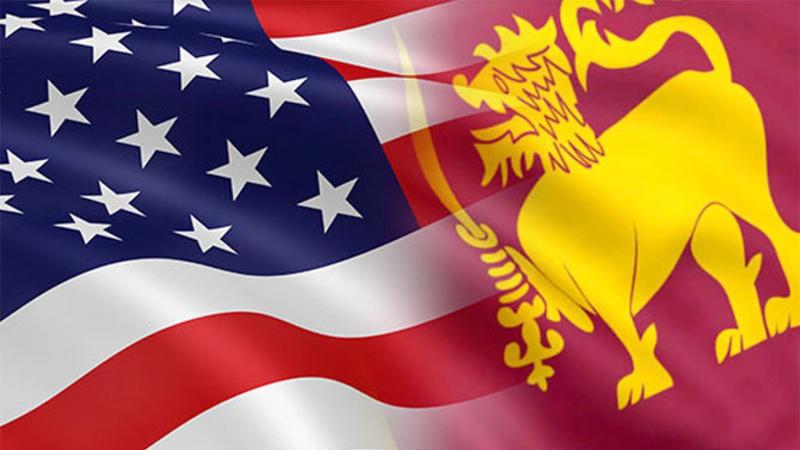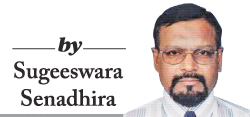
Amid serious differences within the Government of Sri Lanka, about the proposed Status of Forces Agreement (SOFA) with the United States, Washington continues to pressure Colombo to arrive at a consensus within the Government to pave the way for the new agreement. American Embassy Spokesperson Nancy Van Horn said, as democracies in the Indo-Pacific, the US and Sri Lanka have to build a strong partnership that enhances security for the people of the two countries and the region.
 President Maithripala Sirisena expressed opposition to SOFA at a recent meeting of the Cabinet of Ministers. Media reports said President Sirisena and Prime Minister RanilWickremesinghe had raised concerns on some of the provisions of SOFA and that the US embassy in Colombo has already been apprised of these concerns.The US Government agreed to further negotiate the proposed agreement through the ‘usual diplomatic channels’, which would initially be at a ‘technical level’.
President Maithripala Sirisena expressed opposition to SOFA at a recent meeting of the Cabinet of Ministers. Media reports said President Sirisena and Prime Minister RanilWickremesinghe had raised concerns on some of the provisions of SOFA and that the US embassy in Colombo has already been apprised of these concerns.The US Government agreed to further negotiate the proposed agreement through the ‘usual diplomatic channels’, which would initially be at a ‘technical level’.
Spokesperson Nancy Van Horn said, “We have proposed amending this agreement to include some additional privileges, such as the mutual recognition of professional licences, how US military personnel, US Department of Defence (DOD) military persons and civilians can visit Sri Lanka, fees for support services rendered, and regulations for hiring foreign and local contractors.” She added that the updates will streamline processes already in place and facilitate collaboration with the Sri Lankan military on counter-terrorism practices, maritime security, and other issues of common concern.
SOFA is another controversial agreement the US was proposing to the Acquisition and Cross Services Agreement (ACSA) initially signed in 2007 and renewed in 2017.The signatories to the March 5 2007 agreement were, then Ambassador of the US to Sri Lanka Robert O’Blake and former Defence Secretary Gotabaya Rajapaksa. The agreement was for 10 years ending March 6, 2017.
The ACSA provides for joint military cooperation between Sri Lanka and the US and includes logistic support, supplies, services and the use of airports and ports during ‘unforeseen circumstances’. While the 2007 ACSA permits US military vessels to anchor in Sri Lankan ports on an ‘on-off’ basis, the 2017 ACSA appears to be “open-ended”.
During the recent discussions in Washington, Foreign Minister Tilak Marapana raised issues on some of the provisions in SOFA, including that relating to immunity provided to foreign servicemen on Lankan soil. He said these were matters related to diplomatic immunity, privileges and local laws.
The JanathaVimukthi Peramuna (JVP) protested that SOFA would have an adverse impact on the country’s sovereignty and that Parliament should be notified of such matters.The JVP opposed the ACSA in 2007 and said the pact has allowed US forces to utilize various facilities in Sri Lanka such as ports, airports and communication facilities.”This agreement was signed by the then Defence Secretary Gotabaya Rajapaksa and US Ambassador Robert O’Blake. The pact, as far as we know was never presented to the Cabinet or Parliament. It was secretly signed and both parties were US citizens. Thereafter, we raised the issue in Parliament for months, asking the then government to reveal details of the agreement to Parliament. In July 2007, after a lapse of six months, a section of the agreement was tabled in Parliament without several of the annexes,” JVP MP Bimal Ratnayake said at that time.
The US however claims such agreements are standard practice between global partners and the US, which has similar agreements with more than 100 other nations around the world. The US’ view is that these agreements facilitate training, exercises, and exchanges, as mutually agreed and for the benefit of both countries.
TheUS has dismissed the fear that it would be able to use the agreement to establish a military base in Sri Lanka, insisting that it will not permit them to establish a base in Sri Lanka or station troops in the country.“Sri Lanka would retain all its sovereign rights to approve or deny entry or exit of US personnel, vessels, and aircraft into Sri Lanka’s territory and territorial waters/airspace,” the US Spokesperson said.
Foreign Minister Marapana reportedly informed the US that Sri Lanka will find it difficult to grant immunity from criminal jurisdiction to US forces. It was also stated that it will be difficult to implement the 1995 SOFA agreed through an exchange of notes due to the enforcement of the Diplomatic Privileges Act No. 9 of 1996.
A new draft of ACSA was proposed by the US in July 2016, the contents of which are similar. However, a key difference was with regard to timelines, in that the proposed new ACSA will not require renewal, meaning it would remain in force until either party gives 180 days’ notice of its intention to terminate the agreement.
Subsequently, the US proposed to replace ACSA with SOFA, and is currently party to more than 100 agreements that may be considered SOFAs. These agreements establish the framework under which US military personnel operate in a foreign country, addressing how the domestic laws of foreign jurisdiction shall be applied to US personnel while in that country. According to the US, a SOFA may include many provisions, but the most common issue pertains as to which country may exercise criminal jurisdiction over US personnel.
Other provisions in a SOFA include, the wearing of uniforms, taxes and fees, carrying of weapons, use of radio frequencies, licences, and customs regulations. SOFAs are often included, along with other types of military agreements, as part of a comprehensive security arrangement with a particular country. A SOFA itself does not constitute a security arrangement; rather, it establishes the rights and privileges of US personnel present in a country in support of the larger security arrangement. SOFAs may be entered based on authority found in previous treaties and congressional actions or as sole executive agreements.
The JVP alleges that SOFA would grant US military personnel, US military contractors and US military suppliers the same perks and privileges granted to technical and administrative officers of the US Embassy.
The agreement also allows the above-mentioned personnel to enter the country with only a US Government Issued ID card (without a passport). The JVP MP said, if implemented the agreement would take away Sri Lanka’s right to inspect any US vessels (aircraft or naval vessels) that enter Sri Lanka, adding that Sri Lanka will not be able to prosecute any of the personnel under Sri Lankan law for any offence, and that Sri Lanka would not have authority to inspect whatever they bring in or take out of the country.
The clauses of the proposed SOFA must be studied carefully to ensure the pact with US would not be detrimental to Sri Lanka’s sovereignty and jurisdiction.
